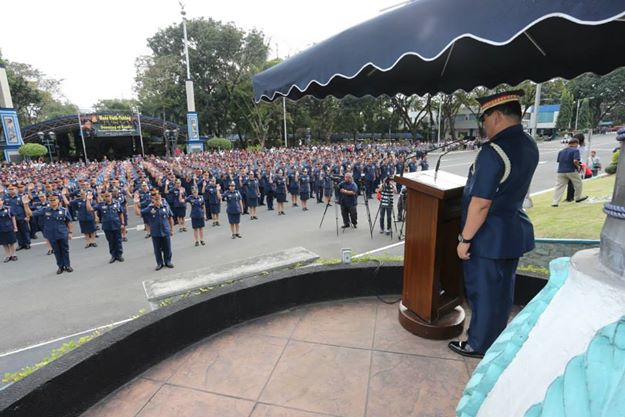Breaking
PNP not cause of delay in resolution of cases vs erring cops — Purisima
MANILA – Philippine National Police (PNP) Director General Alan Purisima clarified on Friday that the PNP does not delay the resolution of cases of some erring police officers facing administrative charges.
The PNP chief was reacting to National Police Commission (Napolcom) Vice Chairman Eduardo Escueta’s statement implying that the PNP was to blame for the slow resolution of administrative cases against erring policemen.
Escueta’s statement came in the wake of the involvement of Senior Police Officer 1 Ramil Hachero and other police personnel in the EDSA robbery and kidnapping incident last Sept. 1. It was found out that Hachero has a pending case of grave misconduct with the penalty of dismissal from the service.
Meanwhile, Chief Supt. Reuben Theodore Sindac, chief of the PNP Public Information Office (PIO), said:
”Given the vice chairman’s statement, the PNP would like to state for the record that it does not sit on administrative cases, leaving them pending for long periods of time.
“The case of Hachero is part of the Napolcom special project to resolve some 2,000 cases pending since 2002.
This is on top of the regular cases already under review by the Chief PNP, as Ex-Officio Commissioner.”
According to Sindac, the Office of the PNP Chief and Ex-Officio Commissioner received 1,355 case folders from December 2013 until the first week of September 2014, out of which he had reviewed and signed 790 cases.
He said that on the average, the PNP Chief received 211 case folders per month from Dec. 10, 2013 to April 2014. The case folder of SPO1 Hachero was received from the Napolcom in April 2014 together with 264 other case folders.
“The Chief PNP would like to emphasize the fact that each case folder that passes through his office is carefully reviewed and assessed before he finally affixes his signature in his capacity as Napolcom Commissioner,” Sindac said.
“If there are comments and corrections, such folders are returned for further review and editing. This is to ensure that each personnel involved in a case is given due process and fair judgment.
Furthermore, the case folders are reviewed as they come, and as our records show, there are numerous case folders that came ahead than that of SPO1 Hachero,” he stressed.






















